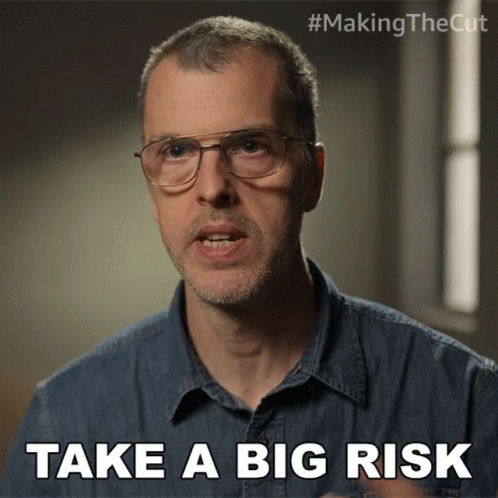- Breaking The Mold by Deric Yee
- Posts
- 4 Years of Building Tech Businesses – Here’s What I Learned
4 Years of Building Tech Businesses – Here’s What I Learned
Let’s talk about what really happens when you build tech businesses from the ground up. After four years of trial, error, and a few sleepless nights, I’ve gathered some game-changing insights. These lessons aren’t just feel-good advice—they’re the real deal. Whether you’re starting from scratch or scaling up, these takeaways will help you move faster, with fewer mistakes.
Here’s what you need to know if you want to thrive in the tech space.

1. Discomfort = Growth
If you’re serious about success, get comfortable with discomfort. No, really—lean into it. In the tech world, things move fast, and comfort zones? They’re the enemy of progress.
Take Reed Hastings at Netflix. The company started as a DVD rental service (remember those?). But when streaming technology hit the scene, Hastings faced a choice: stay in his lane or pivot to something completely new and risky. Spoiler: He took the risk, and Netflix became the streaming powerhouse we all binge-watch today.
On a personal level, I went through a similar transformation. Transitioning from smaller freelance projects to launching my HR tech platform felt terrifying. But it was during those uncertain moments that I made the biggest breakthroughs. You can’t scale if you’re not willing to push beyond what feels safe.
Key takeaway: If you’re not uncomfortable, you’re not growing. Growth doesn’t happen in safe spaces.

2. Problem-Solving Is Your Superpower
Forget the shiny tools, the fancy frameworks, or knowing a dozen programming languages. What really matters is your ability to solve problems. If you can solve a real-world issue, people will pay attention.
Look at Airbnb’s founders—Brian Chesky and his team didn’t set out to revolutionize the hospitality industry. They started with air mattresses in their living room because they needed rent money. That simple solution to a problem became a billion-dollar company.
For my coding bootcamp, Sigma School, we initially thought students just wanted more technical content. But what they really needed was confidence in real-world coding challenges. By shifting our focus to hands-on projects and mentorship, we solved the problem, and that’s when everything clicked.
Key takeaway: The best entrepreneurs are problem-solvers. Focus on fixing real pain points, not just building cool stuff.

3. Imposter Syndrome? Everyone’s Got It
Let me be real with you—imposter syndrome is a thing. Even the most successful entrepreneurs question themselves. The difference? They keep moving forward anyway.
Sheryl Sandberg, Facebook’s COO, admitted she often felt like she didn’t belong in her role. The secret? She didn’t let that voice in her head stop her. When I launched Jobier, my HR platform, I constantly doubted myself—was my product good enough? Was I good enough? The truth is, you’ll never feel fully ready. So stop waiting to feel “qualified.”
Key takeaway: Imposter syndrome never fully goes away, but action silences it. Keep moving.

4. Taking Risks Is Non-Negotiable
If you’re waiting to feel “ready” to take a risk, you’ll be waiting forever. Every major success story involves a leap of faith. Look at Elon Musk—he put everything he earned from PayPal into Tesla and SpaceX, risking it all. Now? He’s reshaped entire industries.
I had a similar moment when I turned down a high-paying job to go all-in on my startups. It was scary, but betting on myself opened up opportunities I never would’ve had if I played it safe.
Key takeaway: You won’t grow by staying comfortable. Take the leap—doors open when you take calculated risks.

5. Long-Term Vision Beats Quick Wins
Short-term wins are tempting, but they’re distractions. Real success comes from thinking long-term. Jeff Bezos didn’t focus on immediate profits when he started Amazon. He focused on building infrastructure for future growth, and today Amazon dominates.
I’ve applied the same mindset in my businesses. At Sigma Studios, we turned down clients who didn’t align with our long-term vision, even though they would’ve been profitable in the short run. Instead of chasing quick revenue, we focused on building long-lasting relationships with the right clients—and that’s paid off in a big way.
Key takeaway: Don’t chase quick wins. Think long-term if you want sustainable success.

6. Systems and Automation Are Non-Negotiable for Scaling
You can’t grow if you’re manually handling every task. Building scalable systems and automating where you can is essential for growth.
Tony Hsieh at Zappos mastered this. His company’s internal systems allowed Zappos to scale while maintaining exceptional customer service. Similarly, at Sigma School, automating our student onboarding process freed us up to focus on delivering value in the classroom. We didn’t need more people—we just needed better systems.
Key takeaway: Build systems that can run without you. That’s how you scale.
Closing:
So, after four years of building tech businesses, here’s what I know for sure: You need to embrace discomfort, become a world-class problem solver, manage imposter syndrome, take calculated risks, think long-term, and build systems to scale. These lessons aren’t just theories—they’re what’s helped me grow my companies from the ground up.
Got questions? Drop them in the comments—I’d love to help.
Reply